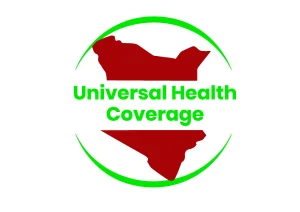Project 1: Community-Based Health Insurance (CBHI) Schemes
Since 2009, Afya Yetu Initiative (AYI) has been at the forefront of designing, operationalizing, and promoting community-based health insurance (CBHI) schemes. These initiatives have significantly benefited the low-income population and informal sector workers by reducing their healthcare financial burden and enhancing their health-seeking behavior.
Key Achievements:
Creation of Schemes and Networks: At its peak, the CBHI project established 105 sub-locational schemes and 3 county-level networks (Nyeri, Murang’a, and Kirinyaga), impacting over 200,000 beneficiaries. Despite not reaching full sustainability, the project demonstrated the viability of low-cost micro-insurance strategies, achieving an average growth rate of 10% over five years and extending coverage to previously neglected groups and market segments.
Complementary to NHIF:CBHI schemes cater to 60% of the monthly income of those covered by the government-promoted National Hospital Insurance Fund (NHIF). They offer a localized, affordable solution that complements NHIF by attracting vulnerable, low-income informal sector households, who often face exclusion from mainstream insurances. This approach has garnered support from local governments and NHIF, aligning with the country’s goal of achieving Universal Health Coverage (UHC).
Community Trust and Ownership:
By placing scheme governance and management roles in the hands of elected community leaders, the CBHI project has built trust and demonstrated a commitment to improving daily lives and increasing community ownership. AYI leverages this social capital in its ongoing activities.
Recognition:
The Micro Insurance Learning and Knowledge Centre (MILK), a reputable American research firm, recognized AYI’s products in 2013 as offering the highest client value among products distributed in Kenya (source: [Micro Insurance Centre](http://www.microinsurancecentre.org)).
Benefits of CBHI:
1. Financial Relief: Reduces healthcare financial burden for low-income and informal sector workers.
2. Improved Health Behavior: Encourages better health-seeking behavior among beneficiaries.
3. Sustainability: Demonstrates a viable low-cost micro-insurance strategy.
4. Inclusivity: Extends coverage to vulnerable and neglected groups.
5. Community Governance: Enhances trust and ownership through elected community leaders.
Conclusion:
AYI’s CBHI project stands as a testament to the power of community-based solutions in healthcare. By aligning with local governments and NHIF, and placing trust in community leadership, AYI continues to impact lives positively and work towards sustainable health coverage for all.

